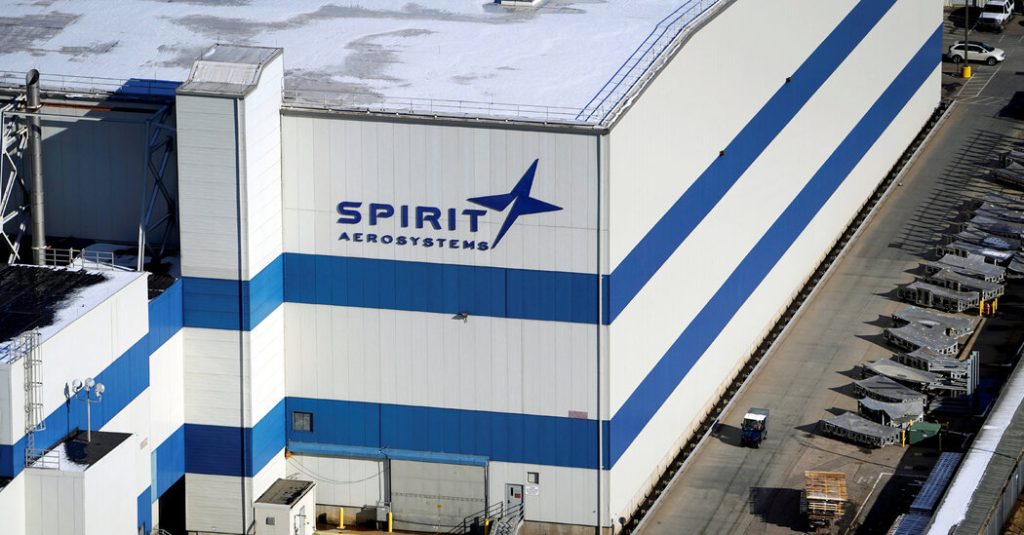The Federal Aviation Administration conducted an audit of the Boeing 737 Max production after an incident involving an Alaska Airlines flight in which a door plug blew off. The examination revealed numerous issues at Boeing and its supplier, Spirit AeroSystems. Spirit, facing financial losses and quality problems, was in talks with Boeing for acquisition. However, the use of unconventional items like Dawn dish soap and a hotel key card as part of their manufacturing process raised eyebrows. Spirit defended these tools as approved shop aids that were authorized by Boeing and F.A.A. standards to improve production efficiency.
During the audit, F.A.A. employees visited Spirit’s factory in Wichita and observed the handling of door plugs, which replace emergency exits in a denser seating configuration. Spirit mechanics were seen using a hotel key card to check a door seal, a practice not documented in the production order. This tool was developed to ensure there were no obstructions or pinching of the door seal. A similar tool was subsequently created by Spirit engineers, replacing the hotel key card. The F.A.A. also noted the use of Dawn dish soap as a lubricant during the seal fit-up process, followed by cleaning with a wet cheesecloth. Spirit claimed the soap was used to prevent tears or bulging when installing the seal and had been approved by Boeing for use.
Spirit AeroSystems routinely looks for innovative ways to streamline the fuselage manufacturing process. The use of unconventional tools like Dawn dish soap and a hotel key card, although initially raising concerns, were ultimately approved by Boeing as shop aids. The company’s engineers developed a specialized tool resembling a key card for checking door seals and a process involving liquid soap to avoid seal damage. Previous attempts with products like Vaseline, cornstarch, and talcum powder were found to degrade the seal over time, leading to the adoption of Dawn dish soap. Spirit’s commitment to efficiency and quality control was evident in its efforts to gain approval and documentation for the use of these unconventional tools in the manufacturing process.
The audit conducted by the F.A.A. highlighted the use of unconventional items like Dawn dish soap and a hotel key card in Spirit AeroSystems’ manufacturing process for the Boeing 737 Max. These tools, although seemingly unorthodox, were approved by Boeing and met F.A.A. standards as shop aids. Spirit defended the use of these items as part of their innovative approach to enhancing production efficiency. The company developed a specialized scraping tool resembling a key card for testing door seals, replacing the makeshift hotel key card, and received approval from Boeing for its use. The use of liquid soap like Dawn during the seal fit-up process was also approved as a lubricant, preventing seal damage and ensuring quality control in production.
To address the concerns raised during the audit, Spirit engineers developed a specialized tool for checking door seals, replacing the use of a hotel key card. Despite initial reservations about the use of unconventional items like Dawn dish soap in the manufacturing process, Spirit successfully obtained approval and documentation from Boeing for their use as shop aids. The use of these tools was geared towards improving production efficiency and ensuring quality control by preventing seal damage. Spirit’s commitment to innovation and continuous improvement was evident in its creative solutions to streamline the fuselage manufacturing process for the Boeing 737 Max. The company’s efforts to gain approval and documentation for the use of these unconventional tools underscored its dedication to maintaining high standards in aircraft manufacturing.


